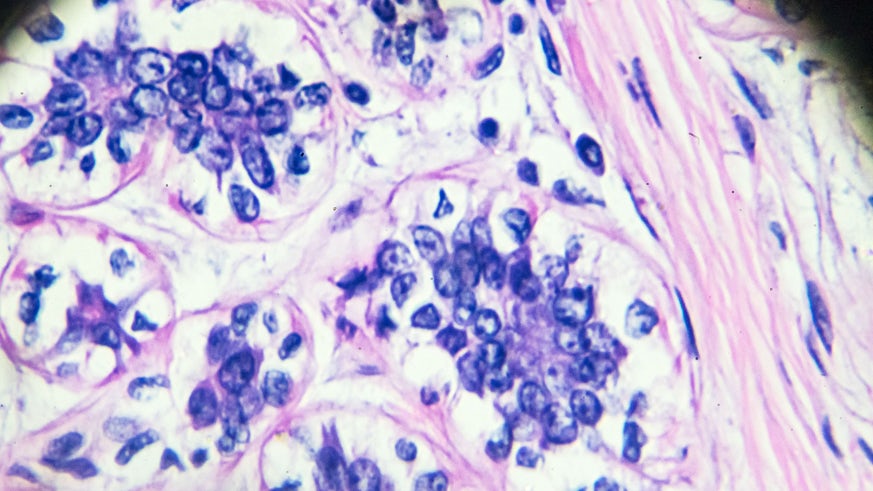New insight into aggressive breast cancers
26 December 2018

Scientists from Cardiff University have uncovered a protein which drives aggressive breast cancer and could be targeted for developing new and improved therapies.
Professor Matt Smalley, from Cardiff University’s European Cancer Stem Cell Research Institute, said: “There are 150 new cases of breast cancer diagnosed in the UK every day. To achieve better outcomes for people facing this disease, we need to better understand how it develops so we can improve therapies.
“We wanted to understand what drives an aggressive type of breast cancer called triple negative, which is resistant to hormone therapy and occurs in around fifteen percent of breast cancer cases.
“We looked at a protein called LYN, which is involved in keeping cells alive and allowing them to divide, and found that it was no longer properly controlled in aggressive breast cancer cells and could drive the cancer cell growth, spread and invasion.”
The team also found that in a subset of triple negative breast cancer cells associated with the BRCA1 gene mutation, LYN could be switched on and increase cancer cell survival directly as a result of the loss of BRCA1. Interfering with LYN function under experimental conditions killed these BRCA1-mutant cells.
Professor Matt Smalley added: "Thanks to Breast Cancer Now, who funded this research, we now understand the role LYN has in aggressive forms of cancer. We can now build on this and can start to think about developing targeted therapies.
“In the future, we could potentially identify patients that have increased levels of LYN or a BRCA1 gene mutation, and design their breast cancer therapy to suit their type of cancer. We could target LYN to improve therapy options for aggressive breast cancer.”



